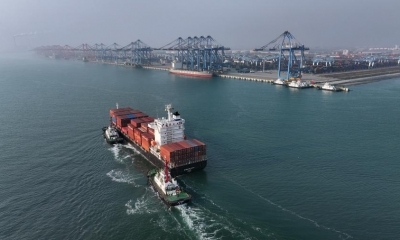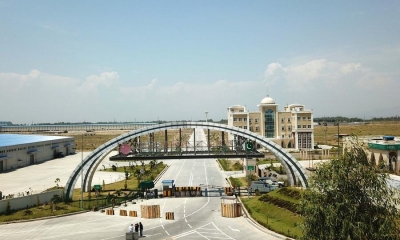Pakistan PM’s China Trip: Fortunes & Challenges
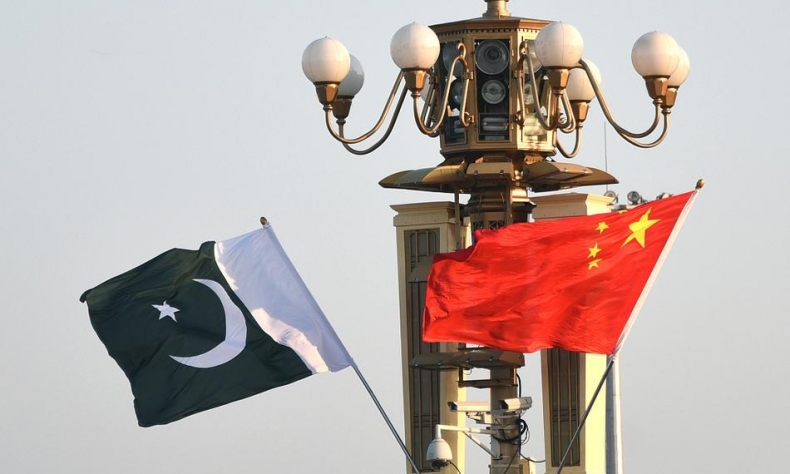
The strong emphasis of PM Shahbaz Sharif during China trip is to discover more and hefty avenues to expand trade volume with China.
Filled with fortunes and challenges, the 5-day official visit of Pakistan Prime Minister Shahbaz Sharif to China will unlock scores of cooperation opportunities in modern industrialization, agriculture, Special Economic Zones (SEZs), digital economy and AI-driven infrastructure between Pakistan and China, thus opening a brand-new chapter of CPEC phase II, a flagship project of the Belt and Road Initiative.
Since the formation of new government, it is the first visit of PM Shahbaz Sharif to China stipulating Pakistan’s innate priorities to Beijing to mutually break new grounds of trade, commerce, security and people to people exchange.
It seems to be a jump-start for tapping those areas of collaborations that are underexplored on the heels of marking momentous 73rd Pak-China Diplomatic relations celebrated by both countries.
PM’s China trip has taken place at a watershed moment when CPEC (phase I) that underpinned Pakistan’s economy and minimized energy & infrastructure crisis in the country has marked its completion successfully and CPEC phase II (based on AI-led economy) is formally going to get underway in Pakistan under the blossoming spirit of BRI.
As China recently unleashed new quality productive forces under the vision of President Xi Jinping by replacing traditional economic model with new development philosophy, team of visiting PM Shahbaz Sharif can seek deeper understanding of China’s economic models to further power up Pakistan’s economy on modern lines.
E-commerce is a fast-growing sector in Pakistan, and China’s brilliance in this arena gives plenty of lessons. The visit lays down the bases of possibilities for cooperation in e-commerce landscape, digital payment systems, and logistics infrastructure. By leveraging Chinese expertness, Pakistan can introduce high-tech digital trade ecosystem that foster consumer access, boost up entrepreneurship, and shore up economic growth.
As Pakistan is trying to integrate into the digital world, command on cyber-security and data protection is a pre-requisite. China’s top-notch cyber-security frameworks can be inspirational models to be followed by Pakistan. Having explored Pak-China digital cooperation and channelizing relevant technologies, Pakistan can develop a secure digital environment to protect critical infrastructure, financial systems, and personal data from cyber-attacks.
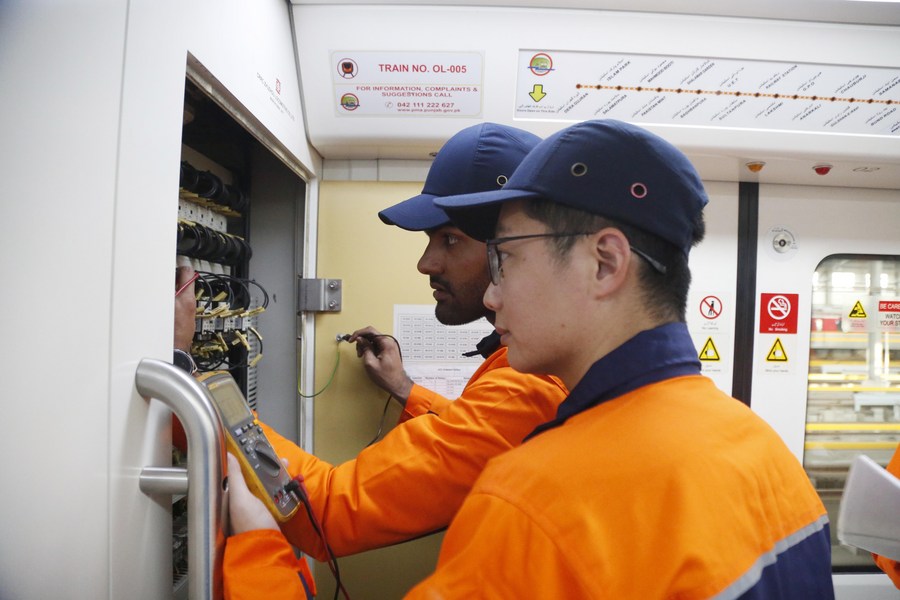
Under CPEC framework, a landmark BRI project, China has invested $25.4 billion in various forms that created 236,000 jobs, constructed 510 km of highways, installed power generating capacity of more than 8,000 megawatts and laid down 886 km of core transmission network, generating a strong impetus to Pakistan’s economic and social development. Taking advantage of this PM’s visit, Pakistan can seek more possibilities to secure more investment from China.
China is also ready to further promote high-quality Belt and Road cooperation with the Pakistani side, to pass on the benefits of the Global Development Initiative (GDI), Global Security Initiative (GSI) and the Global Civilization Initiative (GCI). Pakistan PM Shahbaz Sharif during the visit has series of fortunes to get assimilated with GDI, GSI and GCI to start the journey of global competition on regional and international landscapes.
The emphasis of PM Shahbaz Sharif during his China trip is to discover more and hefty avenues to expand trade volume with China. That is what he highlighted during Pakistan-China Business Forum held in Shenzhen. Technically speaking, The China Pakistan Free Trade Agreement (CPFTA) Phase II, set to be concluded this year, has now moved into the review stage. The goal is to help grow Pakistan’s export footprints in China through additional tariff concessions and expanded product coverage.
Before the initial Free Trade Agreement (FTA), Pakistan’s exports to China were valued at $0.5 billion in 2006. Following the inception of the FTA, the exports increased to $1.6 billion in 2016. It was further recorded at $2.53 billion after CPFTA Phase I and Phase II in 2022. According to data from the China General Administration of Customs, Pakistani exports to China reached $3.452 billion in 2023.
I honestly deem this visit to be a lucky charm for PM Shahbaz Sharif and it facilitates him to negotiate with Chinese traders and investors and persuade them to leverage CPFTA and vice versa.
Challenges
In Pakistan’s perspective security scenario is fragile due to myriad geo-political and geo-strategic complexities. Over the last few years, non-state actors who are hell-bent to inflict harm on Pak-China relations have intensified their terror activities in various parts of Pakistan. Terrorist attacks on Chinese in Karachi, Gwadar, Quetta and Dasu dam raised the alarms.
Bearing in mind that matters like these may hamper foreign investment, Pakistani PM Shahbaz Sharif in his second-day speech in Shenzhen assured Chinese investors and their projects of all-out facilitation and foolproof security in Pakistan.
The prime minister also ordered the establishment of the Safe City Project in Dasu and Chilas, high security risk areas where Chinese engineers were targeted. The purpose of Safe City is not just to install cameras but to create a system equipped with advanced technology and artificial intelligence tools. This project will ensure comprehensive surveillance and security of the entire areas.
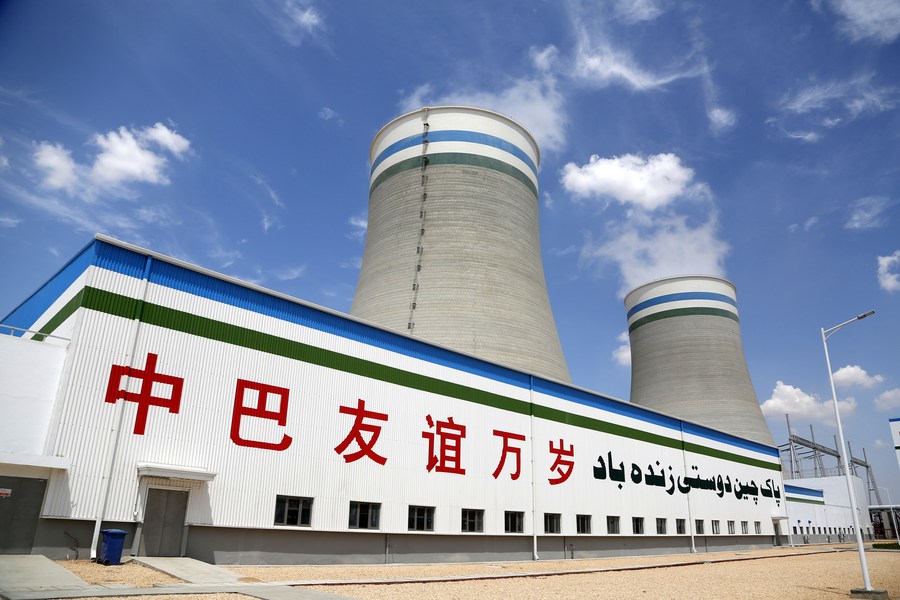
Meanwhile Pakistan interior minister Mohsin Navqi met with Chinese Ambassador in Pakistan Jiang Zaidong and shared with him about enforcement of new standard operating procedures (SOPs) to ensure the security of Chinese citizens across Pakistan.
The Punjab Home Department has made mandatory for the movement of Chinese engineers, including the country’s ambassadorial and consulate staff, in bulletproof vehicles.
In a letter to the DIG Special Protection Unit, the department has directed it to ensure the safety of Chinese engineers as well as staff members of the country’s embassy and consulate in Lahore. It is also written in the letter that 37 new bulletproof vehicles will also be purchased to protect them from any terrorist attack.
Khalid Mansoor, who headed the government’s CPEC Authority for nearly nine months before being replaced in April 2022, said the primary demand of the Chinese is foolproof security.
So far in 2024, Pakistani security forces have collectively conducted 13,135 intelligence-based operations against terrorists and their facilitators, during which 249 terrorists were eliminated while 396 were arrested. Pakistan also has made great sacrifices, with two officers and 60 soldiers sacrificing their precious lives.
Besides this, there are still areas to improve. Current security-driven instruments, like National Action Plan, National counterterrorism Authority, National Intelligence Coordination Committee (NICC) and others, have their own specific functionalities and responsibilities, but lack single focus on Chinese security in totality.
In 2021, for CPEC and Chinese nationals’ foolproof security, National Intelligence Coordination Committee (NICC) came into being. It was projected as a booster for cementing security coordination on CPEC. Given NICC preview in which probably 15 to 20 civil and army intelligence agencies will be integrating to improve intelligence sharing.
Besides the Pakistan Army (PA), the Pakistani Navy (PN) has also assembled forces for CPEC protection, such as the “Task Force-88” (TF-88) for the seaward security of the Gwadar port and protection of associated sea lanes against both traditional/conventional and nontraditional threats. The PN also raised a Coastal Security and Harbour Defence Force to tackle security threats along the coast and stationed a Force Protection Battalion (FPB, consisting of Pakistan Marines) at Gwadar for the protection of Chinese companies and workers. It is required to introduce innovative counterterrorism features to make a difference.
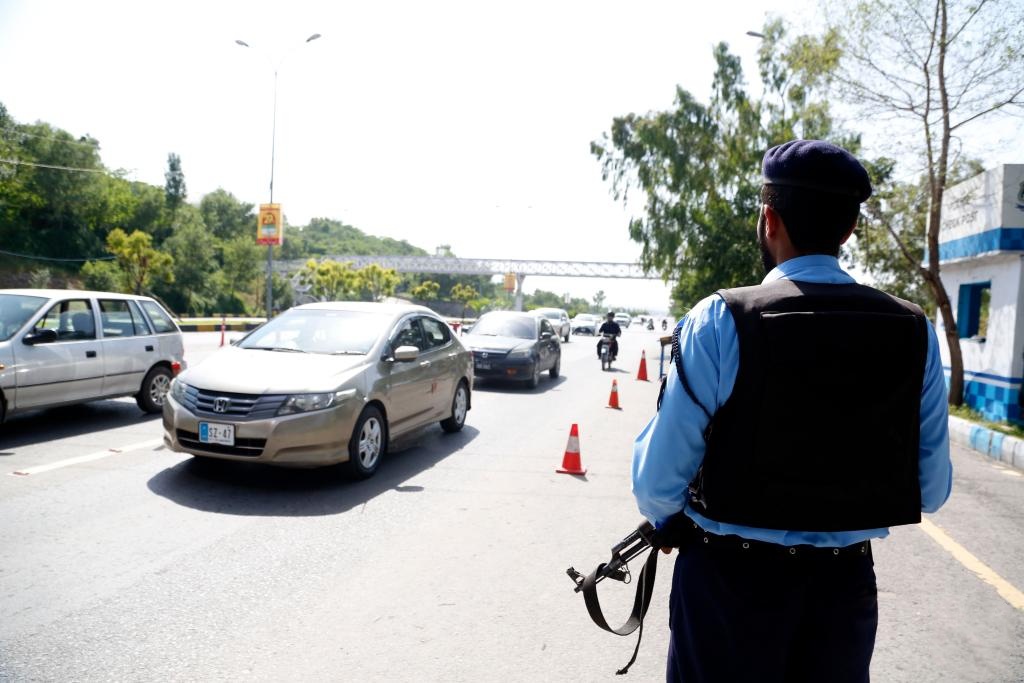
In a nutshell, it is a good idea to launch mega military operation to ensue security cover to Chinese nationals doing business and planning to invest in Pakistan. This military operation might be similar to massive military operation like Zarb-e-Azb that was launched in North Waziristan and later was further extended to Khyber agency named as Khyber-1 2 with the aim to root out terrorism from Pakistan.
Old-styled bureaucracy lased with red tape is a big disappointment for foreign and Chinese investors in Pakistan governance system.
In order to wriggle out of the rut in the first phase, Pakistani government has established a high-powered “Gwadar Prevention Committee” to facilitate the fast-track development in Gwadar Port and Gwadar city on special directives of Prime Minister Shahbaz Sharif. Following a formal meeting with Chief Secretary Balochistan and officials of Government of Balochistan, Chairman of National Accountability Bureau has formulated the Gwadar Prevention Committee. It consists of three sub-committees with a total of 31 members from Pakistan’s top bureaucracy.
The committee’s mandate is to propel all-embracing progress and growth by addressing loopholes and grey areas in governance, laws and management systems. It will work to harmonize and operationalize laws, regulations and procedures related to the Gwadar Port Authority (GPA). It aims to resolve deep-rooted difficulties faced by importers, exporters and transporters regarding custom duties, tax holidays, trade tariffs and excise levies. Additionally, it will oversee the implementation of online tax calculation systems and the provision of civic facilities to Gwadar residents, along with replacing out-dated electricity distribution networks with modern electricity infrastructure in the city.
GPA official told China Focus that Gwadar Prevention Committee will also aim to hash out an actionable plan for the solid waste management of the port city.
He highlighted that governance challenges, such as bureaucratic inefficiencies, regulatory hurdles, and institutional weaknesses, have further hindered the effective implementation of development plans and initiatives in Gwadar. The lack of a coherent and coordinated approach coupled with inadequate infrastructure and human resource capacities are exacerbating the situation and perpetuating a cycle of underdevelopment and missed opportunities in the region, he added.
The Gwadar Prevention Committee will act as a troubleshooter, mobilizing all available resources to uplift the Gwadar port and Gwadar city under the Gwadar smart port city master plan.
 Facebook
Facebook
 Twitter
Twitter
 Linkedin
Linkedin
 Google +
Google +





